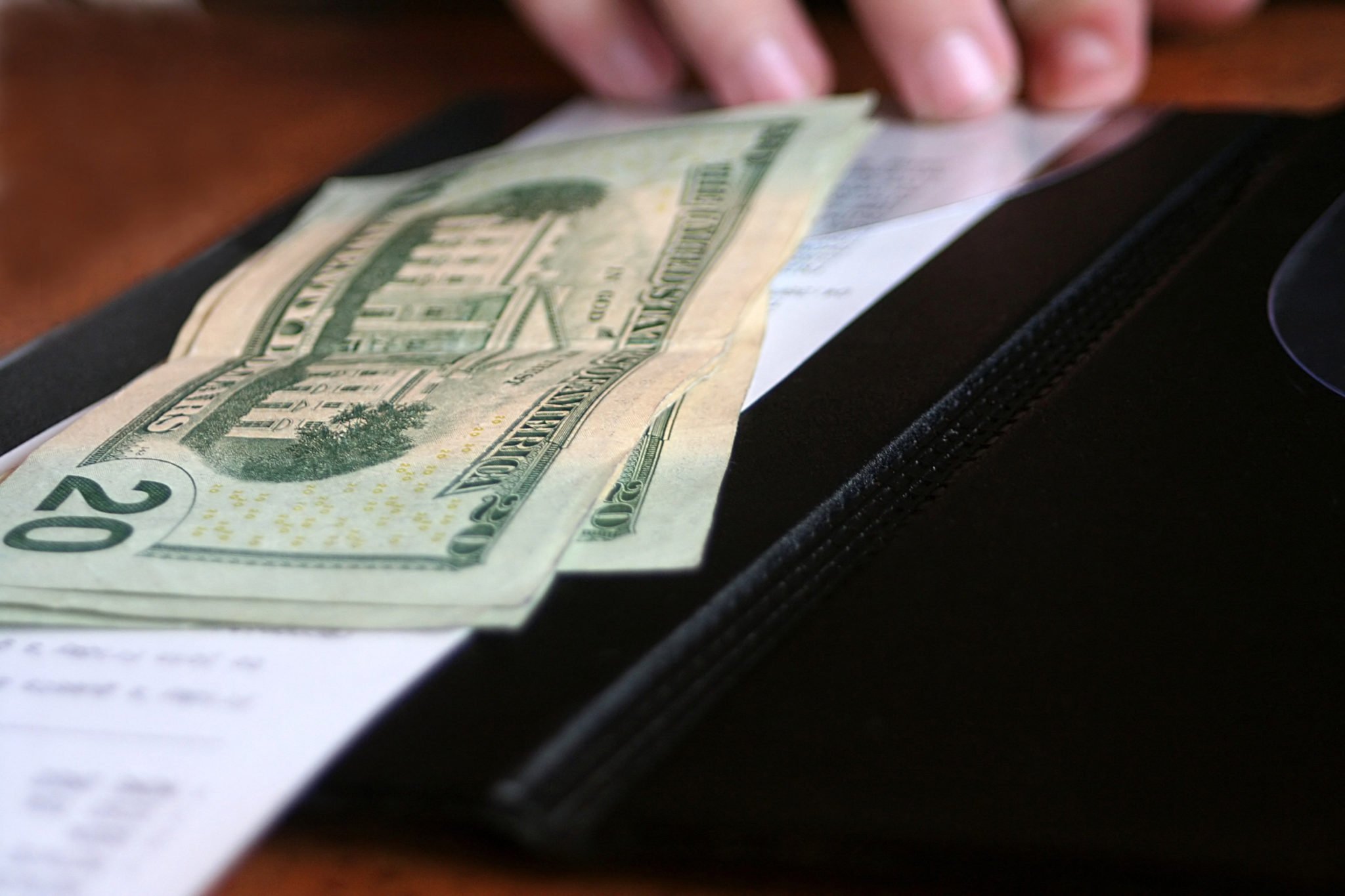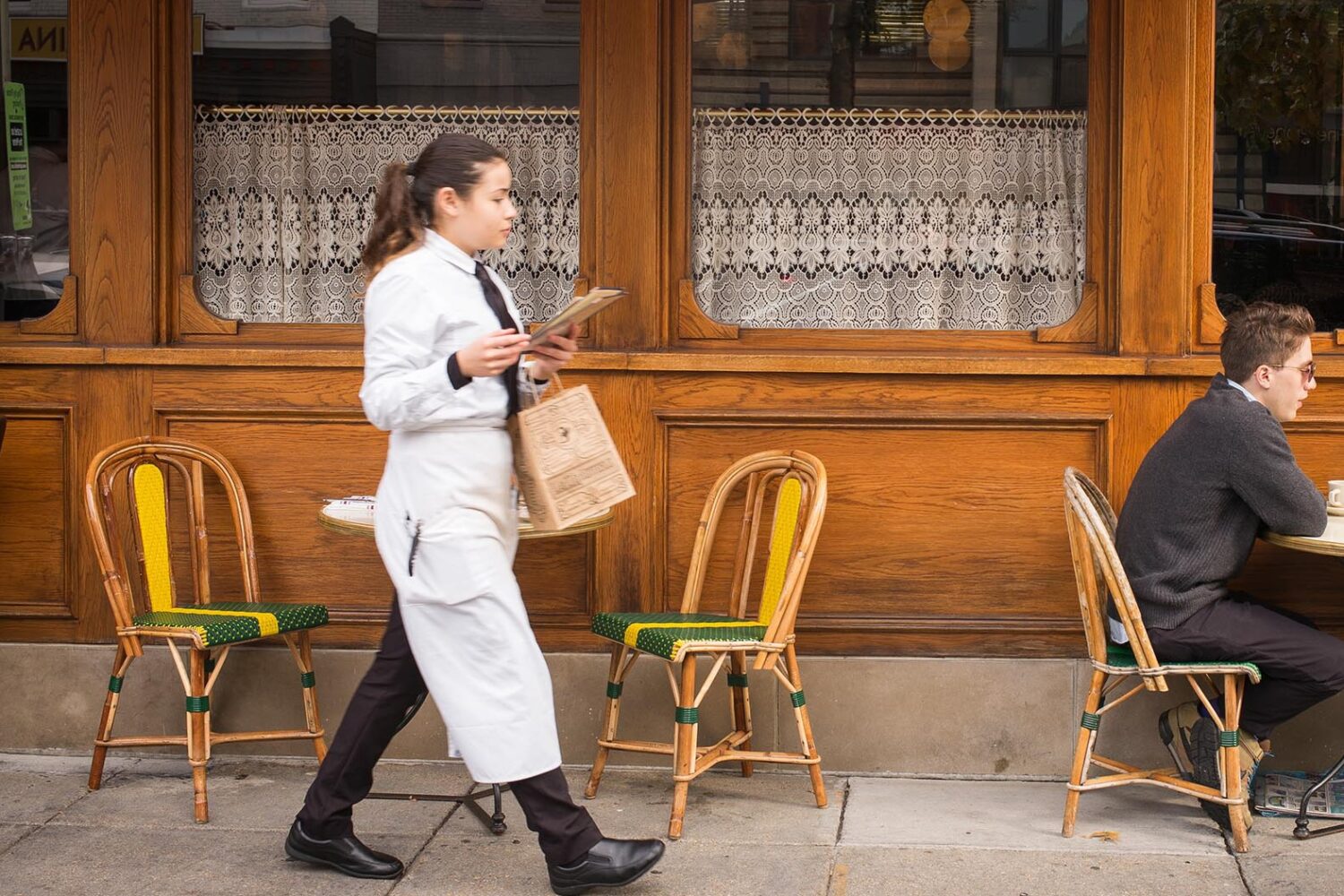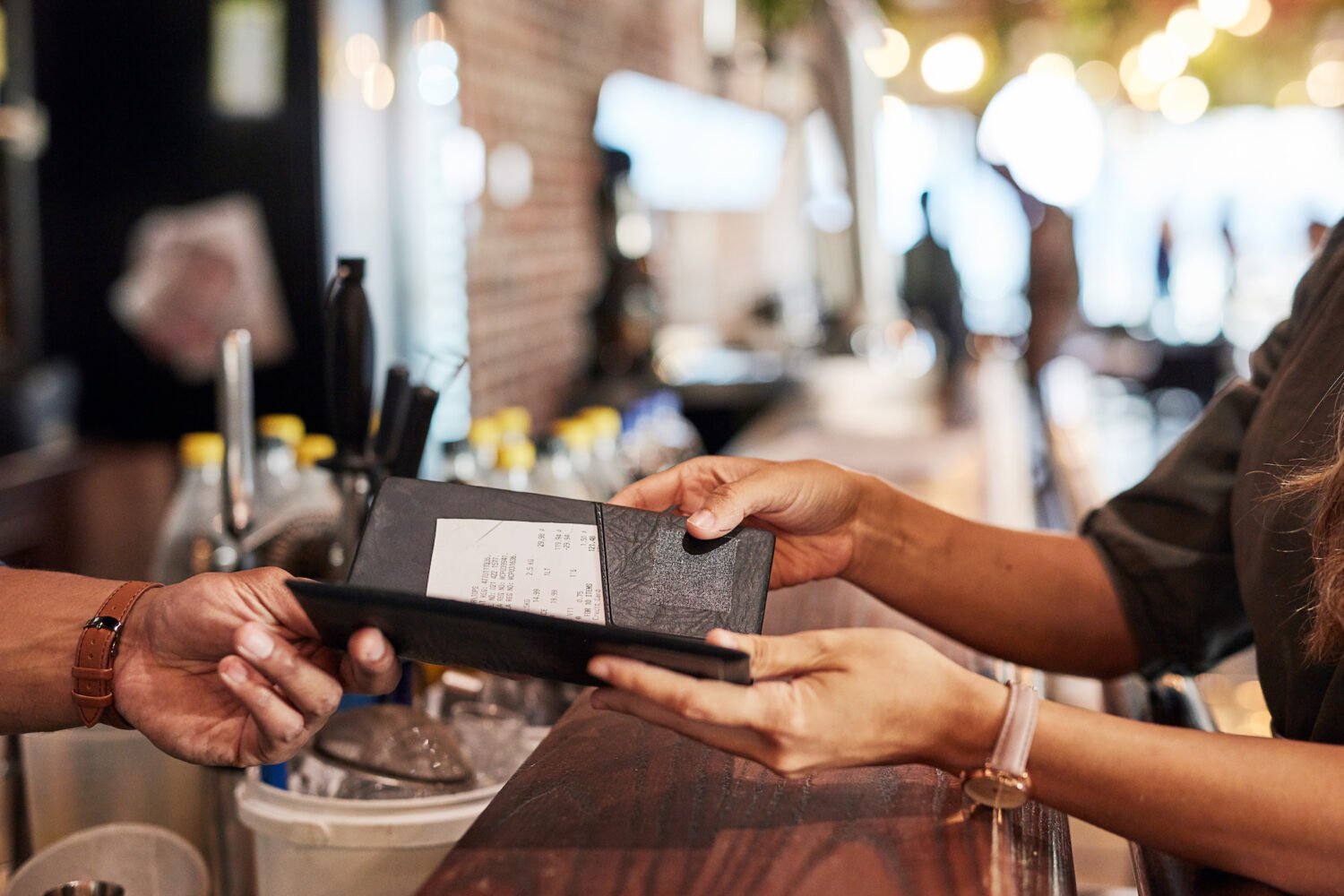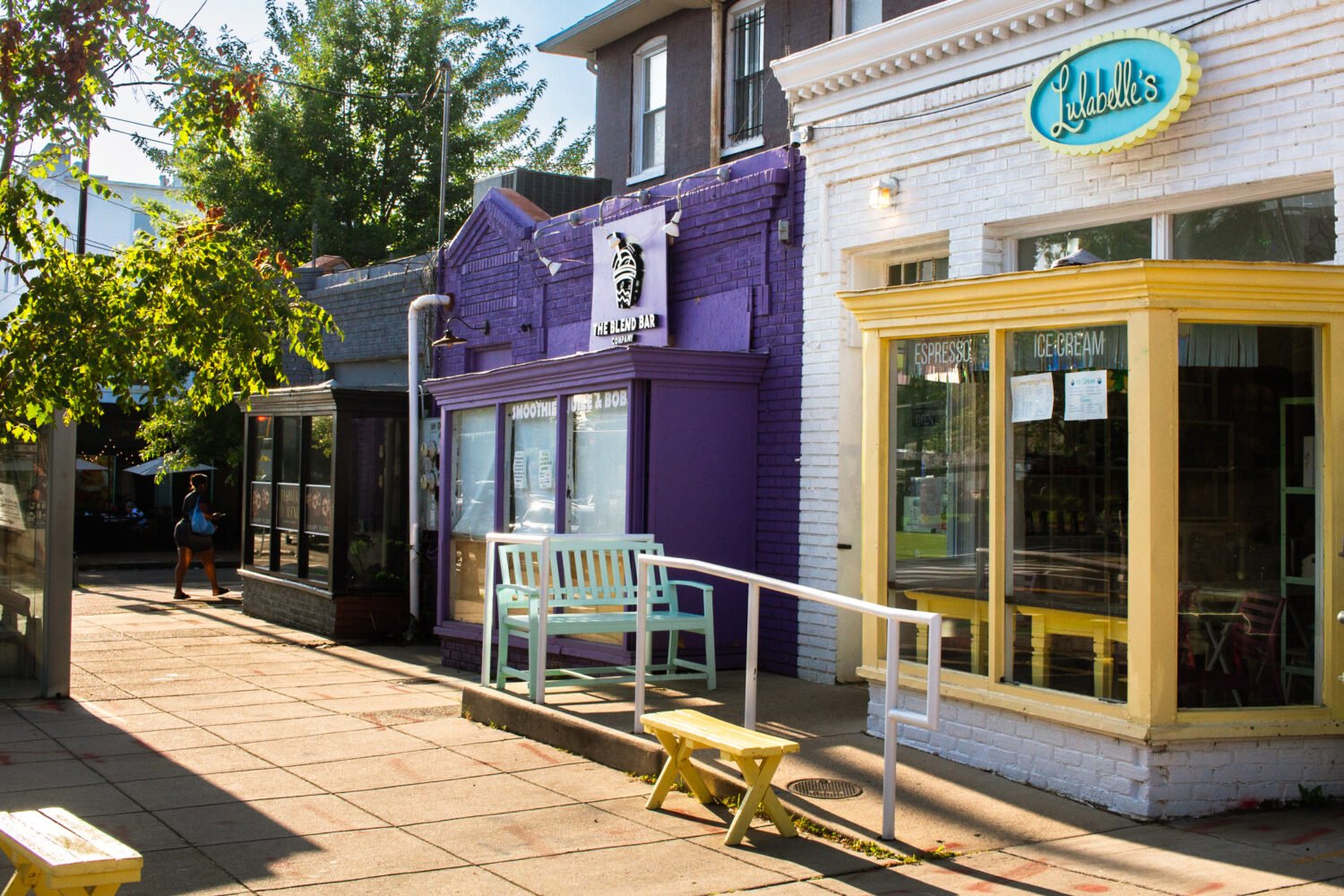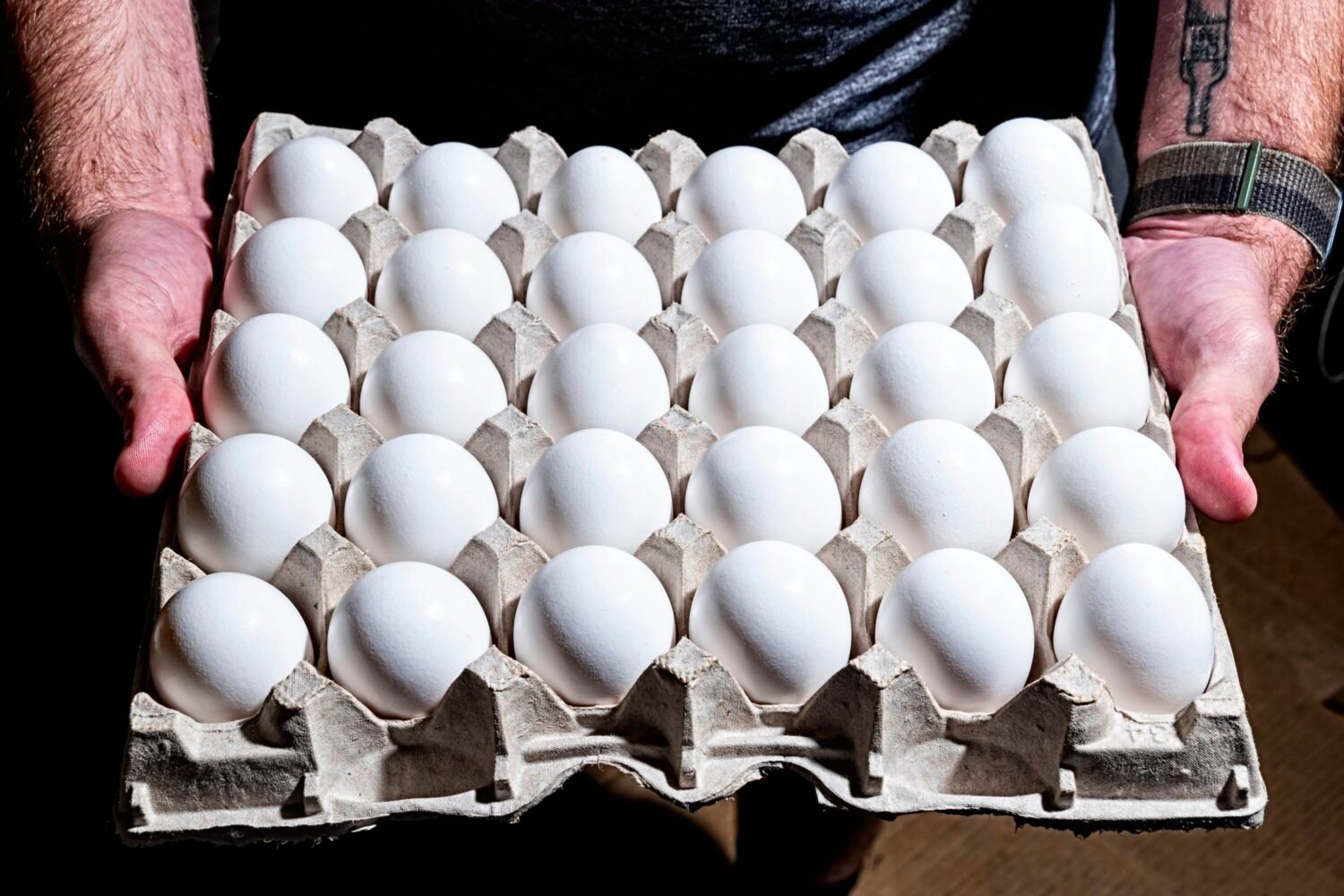DC voters will soon decide whether to eliminate the tipped minimum wage. The ballot measure, dubbed Initiative 82, has the potential to transform the way restaurants operate, servers and bartenders are paid, and diners eat out. But we don’t blame you for finding it all confusing. So, here’s a primer:
First off, what is the tipped minimum wage?
The minimum wage in DC is $16.10 an hour. But servers, bartenders, and other tipped workers have a lower minimum wage—$5.35 an hour—and make up the difference in gratuities, aka the “tip credit.” Employers are required by law to cover workers if they don’t earn enough tips to reach the minimum wage.
What would Initiative 82 do?
It would ultimately eliminate the tipped minimum wage so that there’s one universal wage for everyone. This would happen gradually—by 2027.
Who’s for it and why?
A former DC restaurant server named Ryan O’Leary, who was laid off during the pandemic, proposed to get the initiative on the ballot. O’Leary has also worked as a paid organizer for One Fair Wage, a national advocacy group which has been at the forefront of local campaign efforts to eliminate the tipped wage. The DC Committee to Build A Better Restaurant Industry, the group formally heading support for Initiative 82, has raised the majority of its funds from George Soros-affiliated Open Source Network ($206,000) alongside small individual donations often totaling less than $10.
Advocates of “one fair wage” argue that the tipped wage makes incomes too unpredictable and that workers should not be primarily dependent on the generosity—and biases—of strangers. They argue the two-tiered wage system is inherently discriminatory toward people of color and and encourages employees, particularly women, to put up with sexual harassment and other abuses from customers. Those problems were only exacerbated during the pandemic, especially as workers were asked to enforce Covid protocols from the same people from whom they relied on for tips to survive.
Proponents of Initiative 82 say the current system is a source of poverty and economic instability for most tipped workers. While, yes, there are some who make well over the minimum wage, they claim those people are not representative of the larger tipped wage community. “There was a group of noisy, mostly white men, restaurant owners that opposed this last time,” Saru Jayaraman, President of One Fair Wage. “Most tipped workers don’t work in fancy fine dining restaurants. The majority of tipped workers in DC are people of color and immigrants who actually work in very casual restaurants, and also nail salons, carwashes, parking attendants—so mostly low wage workers.”
Advocates of Initiative 82 also say enforcement of the tipped wage system is too disorganized and lax, and when employees fall short of the minimum wage, businesses don’t do a good job of making up the difference. They believe a less complicated universal wage would fix this.
Who’s against it and why?
The No to I82 committee is financially backed by the National Restaurant Association and Restaurant Association Metropolitan Washington with the help of sizable cash contributions from restaurant groups like Silver Diner ($10,000), Barcelona Wine Bar ($20,000), and José Andrés’s ThinkFoodGroup ($10,000), among others.
Opponents say the initiative is trying to fix a problem that doesn’t exist; they say bartenders and servers typically make more than minimum wage already ($20 to $40 an hour in some cases). Some predict a mass exodus of talent from the city if 82 passes. They also don’t believe systemic problems of discrimination and sexual harassment will be solved with one wage for all. As for enforcement issues? That’s something they’d like to see worked on separately, because everyone should already make minimum wage under the existing law.
Another major concern is that the added labor costs will hurt businesses, particularly at a time when the industry is still fragile and recovering from the pandemic. Smaller, independently owned spots that can’t easily absorb the extra payroll will be the hardest hit by the change, Initiative 82 opponents argue. Restaurateurs say they would have to substantially raise prices on food and drinks and/or cut staff and staff hours. They say it would discourage restaurant owners—especially women and people of color who historically have less access to capital—from opening or expanding businesses in DC.
“I believe voters would think that they’re voting for higher wages, when the reality is that eliminating the tip credit will actually decrease wages for the tipped employees. It will raise costs for the small business, and it will raise costs for the diner,” says Kathy Hollinger, former president of the Restaurant Association Metropolitan Washington.
Wait, this all sounds very familiar…
Yep. That’s because DC residents already voted on this issue in 2018 with Initiative 77. The ballot measure passed with about 55 percent of the vote, but it was ultimately overturned by the DC Council in an 8-to-5 split.
Will the DC Council just overturn it again if Initiative 82 passes?
Mostly likely not. Washington City Paper polled DC councilmembers and found seven of the 13 plan to vote for Initiative 82, while at least a couple lawmakers opposed to it don’t seem interested in a repeal.
If Initiative 82 passes, will I still tip on my meal?
This ballot initiative doesn’t ban tipping, but many restaurant and bar owners say they would switch to a mandatory service charge. Unlike traditional gratuity, a service charge is not legally required to go to employees; the business can use the funds however they want. The vast majority of restaurants that have already instituted a service charge have also kept a tip line on their checks. That said, most diners don’t tip on top of a 20-percent service charge—and most restaurants don’t expect them to.
Have any restaurants already eliminated the tip credit?
Yes. The model has become increasingly popular since the start of the pandemic. One Fair Wage has tracked at least 100 restaurants in DC, via Indeed job postings, that already have the higher base wage. “They can’t get workers to come back any other way,” Jayaraman says.
Meanwhile, Hollinger notes that these restaurants were able to switch to this model on their own terms. “I am all about operator choice,” she says. “But to have it thrown on you in the way that it would be on a ballot coming out of Covid—coupled with rising labor, food, crime—that to me is just irresponsible and insensitive.”
Have other states eliminated the tipped minimum wage?
Yes: Alaska, California, Minnesota, Montana, Nevada, Oregon, and Washington (plus Michigan in 2023). Jayaraman notes that at least eight more states, including Maryland, will be considering initiatives next year to follow suit.
There have been efforts to create a universal wage on a national level as well. Most recently, the Raise the Wage Act of 2021—supported by President Joe Biden—proposed to raise the federal minimum wage to $15 an hour, while eliminating the tipped wage, by 2025. The bill failed in the Senate.
So, when do I vote?
General Election Day is November 8. The early voting period lasts from October 31 to November 6, or you can mail in your ballot anytime up until November 8.
Correction: Ryan O’Leary is no longer a full-time organizer for One Fair Wage.

